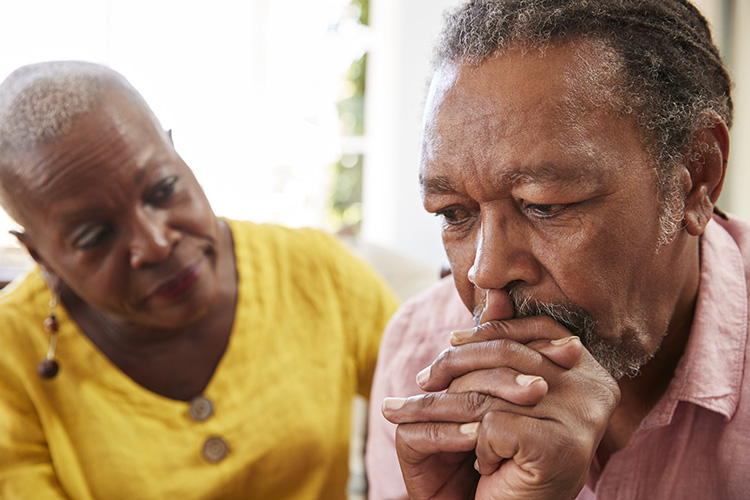How to heal from pain when you’ve lost a loved one.
You have been dealt a horrific blow, one you undoubtedly didn’t deserve. As a matter of fact, no one ever deserves the blow of having to deal with the loss of a loved one. Nonetheless, we all have been dealt or will be dealt the harsh reality of death. Does it help to hear you aren’t the only one? Does it help to hear that some people may have experienced worse? Does it help to hear everything happens for a reason? If you’ve answered no, not really, or absolutely NOT to any of these questions, then you are in the right place. We don’t say any of these things. What we choose to focus on is how to help you navigate from feeling hurt to experience the healing.
Emotional pain is perhaps the most excruciating pain of all. Physical pain is easily identifiable and usually can be given attention with medication, rest, or for extreme injuries, physical therapy. However, emotional pain is not that easy to identify nor address. It’s hard to place a finger and find the ‘spot’ of where it hurts. What’s worse is that there are levels of emotional pain. Emotional pain can run deep and last for years and even generations. We’re not negating that physical pain doesn’t hurt. But what we are saying is that some would rather have a broken finger that can be cast with wounds healed in a few weeks, versus a broken emotional heart. The surgeon can’t point and stitch and say, ‘come back in two weeks’. If only it were that easy.
If it were that easy then we would not grieve, we wouldn’t mourn, and we wouldn’t hurt. The good news is that healing from a broken emotional heart can be done. The bad news is that it’s not that easy. Since we recognize it as an arduous journey, we will immediately provide a few allowances. First and foremost, you are allowed to cry. Did you know there are real benefits to crying? Have you ever felt better after a good cry? Well some of the reasons may be that crying is self-soothing because it activates something in our nervous systems that helps us relax. A second reason is that crying helps relieve pain because it releases endorphins. The third that we will mention is that it aids in sleep. Yes the self-soothing relaxing mood helps us to sleep which is exactly what we need when grieving and hurting.
In addition to the allowance of crying, we also allow you to give yourself permission to be sad, angry, anxious, panic, and lonely. The reason we grant this allowance is because you will undoubtedly experience these stages of grief and if you already have permission and are given allowance, you won’t carry the guilt of some experience as work towards finding balance after your loss. If you expect these things up front, they won’t alarm you when and if you experience this emotional rollercoaster. The goal is not to avoid it, but find healthy ways of expression. Lastly, let’s consider healthy ways to journey from hurting to healing.
5 Steps to Move from Hurting to Healing
- Honor your hurt. Avoidance, denial, and prevention delays the process of grieving. What you are feeling must be recognized, validated, and honored. How else could you move on without first doing it?
- Tap IN. Oftentimes it’s easy to tap OUT, when hurting. We aren’t saying not to take time to yourself because we all will require alone time. But what we are saying is that you are surrounded by resources. You may not recognize them, but they are there. Call a friend, a family member, or your spiritual advisor. If you are feeling you’d rather not “bother them”, make use of hotlines and services usually provided by hospitals. You are likely able to receive therapy sessions.
- Manage your bandwidth. It would be irresponsible to think you could continue all that you did before immediately after your loss. So save yourself the heartache, and don’t try. Also, be prepared to let others know what you are able to do and what you will put on hold for the time being. We are not saying to stop what you are doing, just simply adjust your schedule so you do not have to run full speed as you have in the past. This is not only for your physical health but more importantly for your mental health too.
- Set new boundaries. All that you are experiencing is relatively new. Even if you’ve dealt with death before, no two experiences are the same. Reflect on this experience and by all means bring in what you may have learned from previous experiences. But at the end of the day, things are changing and will forever be changed. Such a change in your life will require consideration of new boundaries. Give thought as to what your current life is able to accept.
- Allow yourself to grow. There was a time where there was an expected time period of mourning. I don’t know how that got started, but I’m glad people have wised up and stopped placinging limitations on the mourning process. This journey you are on will take time and serious efforts. The time taken is for gradual relief of pain so that you hurt less while stepping into healing. Some even grow to the point that part of their hurt becomes a story filled with words of encouragement towards helping others heal. Every experience in life causes us to grow. Death is no different. For at the end of this rainbow is the prospect of healing.
During the grieving process it is important to not self isolate. Always seek support by way of friends, family, spiritual advisor, or a professional therapist.

